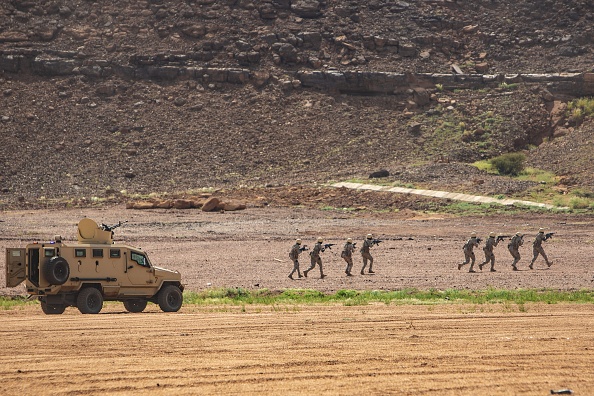Khartoum – Sudan’s civilian leaders were detained on Monday in a “coup”, the information ministry said, before a top general dissolved the government and sovereign council and declared a state of emergency.
The events unfolded as Sudan was navigating a precarious transition to civilian rule, and came more than two years after the end of decades of dictatorship under president Omar al-Bashir.
Here’s what we know about Monday’s developments:
What happened?
The internet and phone lines were largely cut around dawn, shortly before reports began emerging that armed forces had “arrested” the leaders of Sudan’s transitional authorities.
“Civilian members of the transitional sovereign council and a number of ministers from the transitional government have been detained,” the information ministry confirmed later.
It said Prime Minister Abdalla Hamdok was among them.
ALSO READ | WATCH | Sudanese protest into night after general ousts government
They were taken away “to an unidentified location” after “refusing to support the coup”, it said.
People took to the streets of Khartoum later to protest against the power grab, AFP correspondents reported, before soldiers opened fire on them with live rounds near the army headquarters, wounding at least 12, according to an independent doctors group.
General Abdel Fattah al-Burhan appeared on television later to announce the removal of the transitional authorities and declare a state of emergency.
Who is behind the detentions?
The information ministry said “joint military forces” were behind the detentions.
The Sudanese Professionals Association, an umbrella group of trade unions which were key in leading anti-Bashir protests in 2019, denounced a “military coup”.
ALSO READ | Sudan coup generals determined not to lose long-held power – analysts
Soldiers stormed the headquarters of Sudan’s state broadcaster in the capital’s twin city of Omdurman, the information ministry said, before the general made his appearance.
Apart from Burhan’s televised address, the information ministry’s statements on Facebook have been the only channel providing regular announcements.
Who organised protests?
The prime minister’s office urged people to take to the streets.
“We call on the Sudanese people to protest using all peaceful means possible… to take back their revolution from the thieves,” it said in a statement.
Sudan’s bankers’ association and doctors’ union declared campaigns of “civil disobedience”.
ALSO READ | Abdel Fattah al-Burhan, the general who leads Sudan
People set alight tyres and blocked Khartoum’s roads in protest, while others marched through the streets of the capital chanting anti-coup slogans and carrying the Sudanese flag.
The latest protests come after tens of thousands of demonstrators rallied Thursday across Sudan to counter a week-long sit-in supporting pro-military rule in central Khartoum.
Critics charged that the sit-in was orchestrated by senior figures in the security forces, Bashir sympathisers and other “counter-revolutionaries”.
Reactions?
The United States reacted quickly, saying it was “deeply alarmed at reports of a military takeover of the transitional government”.
“This would contravene the Constitutional Declaration (which outlines the transition) and the democratic aspirations of the Sudanese people,” said US special envoy for the Horn of Africa Jeffrey Feltman.
UN special representative to Sudan Volker Perthes said the detentions were “unacceptable”.
“I call on the security forces to immediately release those who have been unlawfully detained or placed under house arrest,” he said on Twitter.
ALSO READ | AU urges ‘immediate’ talks between Sudan’s military, civilians
Arab League chief Ahmed Aboul Gheit “expressed deep concern over the developments in Sudan” and urged all sides to adhere to an August 2019 power-sharing deal.
African Union commission chair Moussa Faki Mahamat called for the “immediate resumption” of dialogue between Sudan’s military and civilians and expressed “deep dismay” at the developments in Sudan.
The European Union called for the “fast release” of Sudan’s civilian leaders and insisted “violence and bloodshed must be avoided”.
Germany said that “the attempted overthrow must come to an immediate end”.
Follow African Insider on Facebook, Twitter and Instagram
Source: AFP
Picture: Getty Images
For more African news, visit Africaninsider.com


